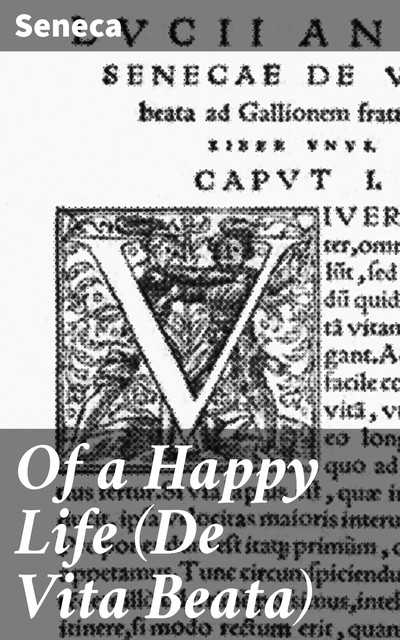Of a Happy Life (De Vita Beata)
47 printed pages
- Copyright owner
- Bookwire
- Original publication
- 2021
- Publication year
- 2021
- Publisher
- Good Press
Quotes
- Ирина Осипенкоhas quoted5 years ago“They are ill at ease,” replies he, “because many things arise which distract their thoughts, and their minds are disquieted by conflicting opinions.” I admit that this is true: still these very men, foolish, inconsistent, and certain to feel remorse as they are, do nevertheless receive great pleasure, and we must allow that in so doing they are as far from feeling any trouble as they are from forming a right judgment, and that, as is the case with many people, they are possessed by a merry madness, and laugh while they rave. The pleasures of wise men, on the other hand, are mild, decorous, verging on dullness, kept under restraint and scarcely noticeable, and are neither invited to come nor received with honour when they come of their own accord, nor are they welcomed with any delight by those whom they visit, who mix them up with their lives and fill up empty spaces with them, like an amusing farce in the intervals of serious business.
- roselyn chandiawijayahas quoted6 years agoLet us therefore inquire, not what is most commonly done, but what is best for us to do, and what will establish us in the possession of undying happiness, not what is approved of by the vulgar, the worst possible exponents of truth.
- roselyn chandiawijayahas quoted6 years agois harmful to follow the march of those who go before us, and since everyone had rather believe another than form his own opinion
fb2epub
Drag & drop your files
(not more than 5 at once)


